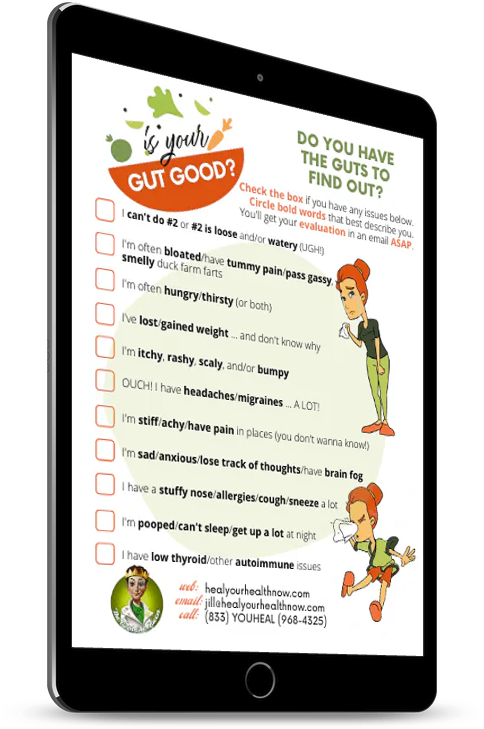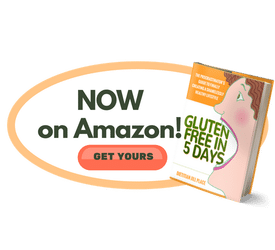By Dietitian Jill Place AKA The Good Gut Queen
The link between drug addiction and cookies is closer than you think. So said the addiction pioneer, Anna Wilson Schaef.
Schaef not only coined the term “codependent”. She was then thought of as “one of the most important thinkers of our time”.
I read her book, When Society Becomes an Addict, many years ago. And couldn’t wait to see her in person. During a seminar with her I attended, she managed to reduce a whole room of psychotherapists to piles of pudding.
But she also did something very revolutionary that day (it was in the 1970’s I think). She listed a bunch of different kinds of addictions (i.e. compulsive overeating, drug, gambling, yadda yadda) on the board and wrote “ADDICTION” in capital letters above them.
She then drew lines from the kinds self-abuse to the word “ADDICTION”. And erased everything on the board except that word. “It’s all addiction to me,” she said.
A Mind-Blowing Idea!
“It’s all addiction to me”! Kind of an idea before its time. Because we’re so busy at fragmenting bits of behavior into pigeonholed diagnoses.
Years after that meeting, I wrote an article about the link between drug addiction and cookies. I cited Richard A. Friedman in a then-recent New York Times Op-Ed article. He not only linked drug addiction to cookies (AKA “comfort food”) … he explained the reason behind them.
One answer is that modern humans have designed the perfect environment to create both these addictions.
No one will be shocked to learn that stress makes people more likely to search for solace in drugs or food (it’s called “comfort food” for a reason). Yet the myth has persisted that addiction is either a moral failure or a hard-wired behavior – that addicts are either completely in command or literally out of their minds.
Now we have a body of research that makes the connection between stress and addiction definitive. More surprising, it shows that we can change that path to addiction by changing our environment.
Neuroscientists have found that food and recreational drugs have a common target in the “reward circuit” of the brain, and that brains of humans and other animals who are stressed undergo biological changes that can make them more susceptible to addiction.
Your Brain On Drugs
When I read this article, all of I could think of was this old Public Service Announcement of a frying egg in a pan and a voiceover that warned, “This is your brain on drugs”. And seeing the radically altered brain scans from research studies on methamphetamine addicts when I worked in the addiction community.
And the very poor prognosis for them. Studies tell us that these alterations linger for at least two years … and may be permanent.
According to Friedman, all pleasurable experiences, such as food, drugs, and sex, release dopamine in the brain. And those who have a higher amount of dopamine receptors are less likely to seek out addictive substances and behaviors, including disordered eating.
He cites a 2010 study by Diana Martinez and colleagues at Columbia University where subjects with higher life stressors were correlated with fewer dopamine receptors in the brain’s reward circuit. Lack of dopamine receptors can predict drug or food abuse.
Fewer Dopamine Receptors and Addiction
One of the studies that Friedman cited linked fewer dopamine receptors with lower activity in the prefrontal cortex, which can lead to lack of critical thinking skills as well as poor self-control. Which means that these individuals have a very difficult time recovering, as is borne out by the statistics.
23.5 million persons aged 12 or older needed treatment for an illicit drug or alcohol abuse problem in 2009 (9.3 percent of persons aged 12 or older). And recovery statistics are dismal … about 10% for alcohol down to less than 1% for methamphetamine users according to my addiction peers.
Statistics More Dismal with Food
These statistics are ever more dismal with food. Food, like drugs, stimulate the reward centers of the brain. And it’s interesting that our favorite foods … high-fat and sugary ones … are also linked to fewer dopamine receptors, which can provoke deep cravings for these foods.
As a matter of fact, Dr. Nora Volkow and colleagues of the National Institute on Drug Abuse, noted that “morbidly obese individuals had reductions in their D2 (dopamine) receptors and that the reduction is proportional to their body mass index. The implication of this blunted reward circuit is that they find normal food consumption insufficiently rewarding”.
Friedman explains that “Nothing in our evolution has prepared us for the double whammy of caloric modern food and potent recreational drugs. Their power to activate our reward circuit, rewire our brain, and nudge us in the direction of compulsive consumption is unprecedented”.
So What Do We Do About All This …
The article suggests that we change our environment. Which reminds me of the book, Changing for Good, in which the authors recommend to restructure “your environment so that the likely occurrence of a problematic stimulus is significantly reduced.”
I even had a client’s husband put a lock on a cupboard so he could keep his goodies away from his dieting wife. And, fortunately, reducing stressful situations and exposure to drugs and addictive foods can reverse addictive behavior.
Although it’s not an easy task, you can rewire the brain with such practices as mindfulness and meditation. All the big nutrition experts are leaving diets in the dust for these new strategies … which are actually as ancient as mankind itself.
These practices can reduce stress, combat cravings, and increase awareness. And harken back to the emphasis on spirituality and surrender that is a huge part of 12-Step Programs.
All you need to do is stop, watch, breathe, and allow yourself to take in the emotional fallout that may result from this process. Because when we say we’re rewiring ourselves, that’s exactly what’s happening.
We’re building new positive neural networks by using them often and allowing the old ones that don’t suit us to wither and die. Keeping away from situations that you know will trigger addictive behaviors wouldn’t hurt either.
Drug addiction … and cookies … and eating disorders … and gambling … and overexercising. Yes … they’re all addiction. And yes … they can be overcome.


Right on target as usual!!!